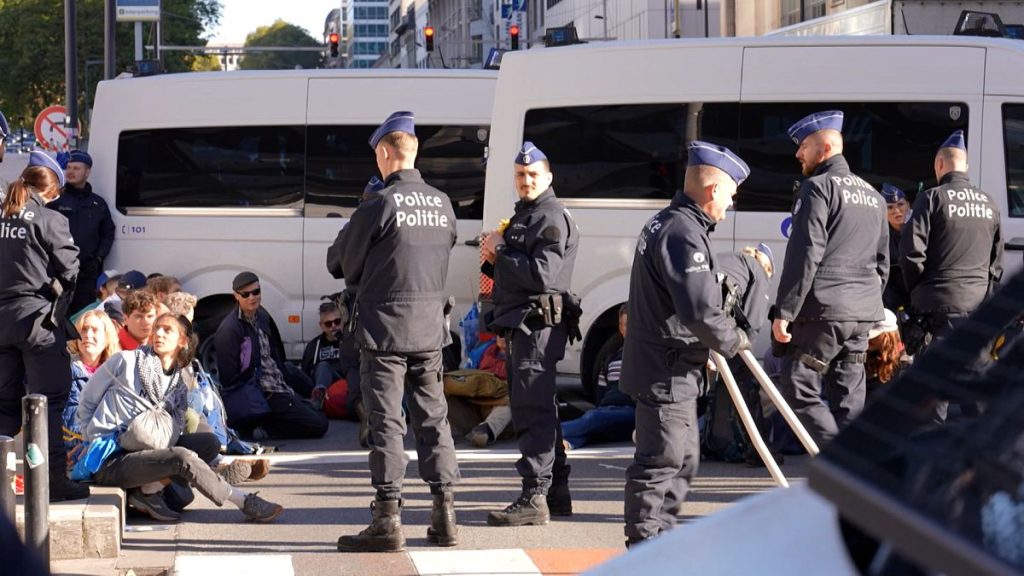Climate activist Greta Thunberg was arrested by Belgian police on Saturday as she joined demonstrators in Brussels demanding an end to EU subsidies for fossil fuels. The protest, organized by ‘United for Climate Justice’ and ‘Extinction Rebellion’, involved blocking a key road near the European Parliament and European Commission buildings. Despite being surrounded by police, protesters continued to chant messages of solidarity as they were detained. The demonstration came after an open letter was sent to the European Union and European Commission President Ursula von der Leyen, calling for the phase-out of fossil fuel subsidies by 2025 and the implementation of transparency and accountability measures.
The European Union currently spends over 100 billion euros a year on subsidies for the oil and gas industry, despite commitments to phase out these subsidies in the 8th Environmental Action Programme. ‘United for Climate Justice’ spokesperson Angela Huston Gold emphasized the urgent need to address the climate crisis, which she described as having reached catastrophic levels. The group has called on the European Commission to fulfill its promises by setting a timeline and methodology for the phase-out of fossil fuel subsidies. Gold stated that the group believes traditional forms of protest such as marches and letters are not enough to make the Commission listen, and that civil disobedience is necessary to disrupt and draw attention to the urgency of the climate crisis.
The demonstration in Brussels was part of a larger strategy by ‘United for Climate Justice’ to increase pressure on the European Commission and scale up their actions across Europe and within Brussels. Protesters distributed stickers advertising future actions planned for later in October, indicating their intention to continue pushing for an end to fossil fuel subsidies. The arrest of Greta Thunberg and other protesters reflects a growing trend of civil disobedience and direct action among climate activists, who believe that traditional forms of advocacy are no longer enough to prompt meaningful change.
Despite commitments made by the European Commission to phase out fossil fuel subsidies, the continued support for the oil and gas industry has prompted further protests and calls for action. The arrest of Greta Thunberg during the demonstration in Brussels highlights the intensity and urgency of the climate crisis, as well as the determination of activists to hold governments and institutions accountable. The use of civil disobedience and direct action signifies a shift towards more confrontational tactics by climate activists who feel that traditional forms of advocacy have not produced the desired outcomes.
The demonstration in Brussels was a culmination of efforts by ‘United for Climate Justice’ to pressure the European Commission to act on their commitments to phase out fossil fuel subsidies. The group’s demands for transparency, accountability, and a clear timeline for phasing out subsidies reflect the urgency of the climate crisis and the need for immediate action. The use of civil disobedience and disruptive tactics underscores the frustration felt by activists who perceive a lack of meaningful progress in addressing the climate emergency.
As climate activists continue to push for an end to fossil fuel subsidies and greater action on climate change, the arrest of Greta Thunberg and other protesters in Brussels serves as a stark reminder of the challenges and risks faced by those advocating for environmental justice. The involvement of young activists like Thunberg highlights the intergenerational nature of the climate movement and the need for urgent action to address the climate crisis. The ongoing protests and demonstrations by ‘United for Climate Justice’ demonstrate a growing determination to hold governments and institutions accountable for their actions and to push for meaningful change in environmental policy.


